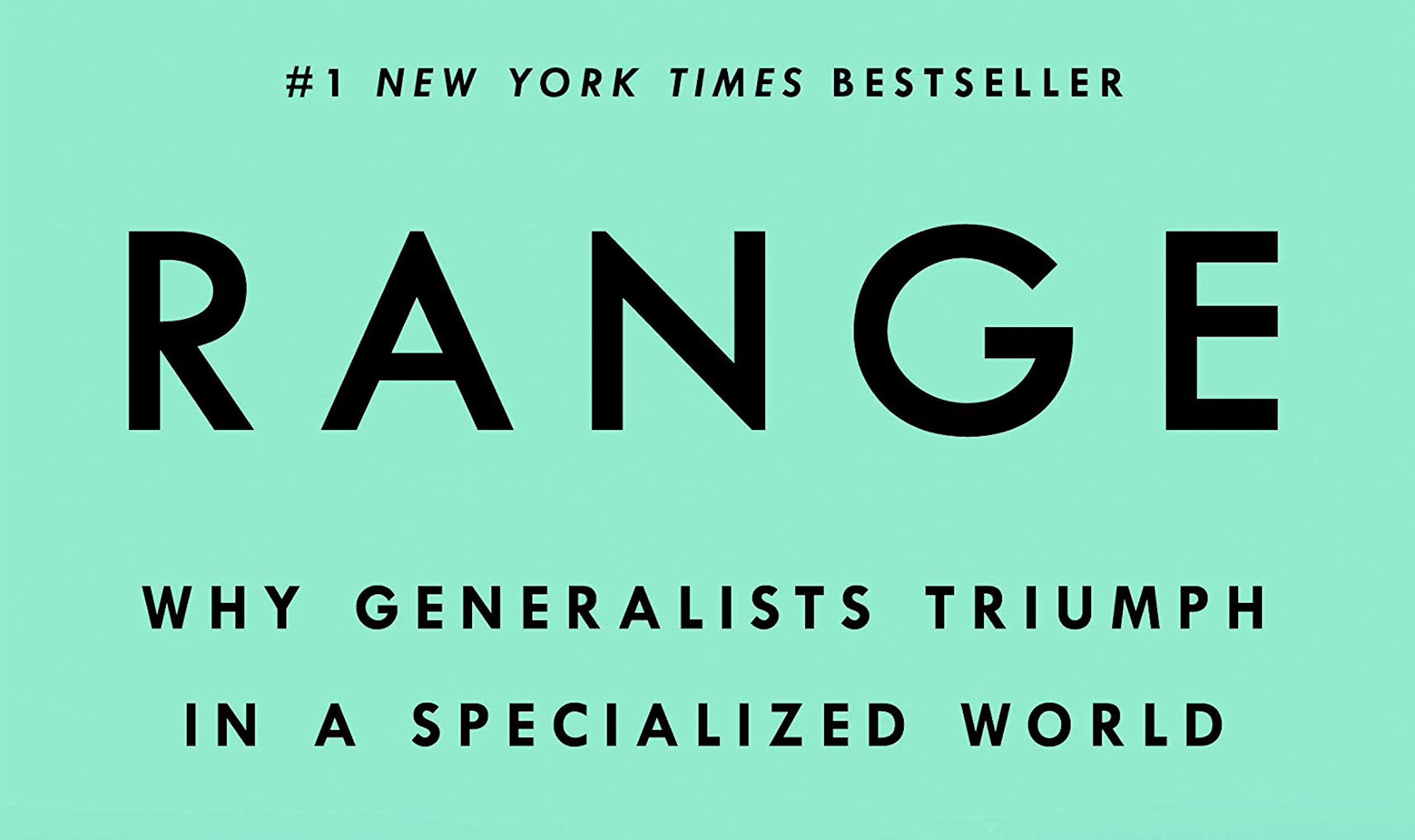
In the world of classical music, the nature of learning and honing an instrument at a high level puts musicians in a culture that embraces the advantage of an early start and a deep commitment to the craft. This is especially evident in modern-day conservatory cultures. Some musicians take their passion so far as to devote their life not only to their instrument but to focus on one specific style of music. While this level of depth and attention to minute details is admirable and something artists explore endlessly, the narrow scope has its disadvantages.
Disadvantage of an Early Specialization
In his book Range, David Epstein makes the case for delaying such commitment to a specialization. While certain skills are great for early development (such as listening and singing, as they would create a foundation for layering new skills on top later), others skills can just as easily be picked up a few years down the line. For example, considering two typical students, a child who starts violin at age 8 will eventually catch up to the one who started at age 3. Epstein talks about the importance of early sampling, or trying out various interests, before making a commitment. It is during this sampling period that one learns more about themselves, and discover what path may be a good match for them. Early specialization is also evident in our culture when college freshmen are pressured into choosing a major before taking time to explore several possibilities.
“There’s nothing wrong with getting a law or medical degree…but it’s actually riskier to make that commitment before you know how it fits you…don’t consider the path fixed. People realize things about themselves halfway through medical school.” – computational neuroscientist Ogi Ogas (Epstein, Range, p. 155)
Diversification Ignites Innovation and New Career Paths
Epstein studied and wrote about highly regarded people across many disciplines (athletes, musicians, scientists, etc) and how their success, creativity, and innovation was in part due to being well-rounded and having interest in subjects outside of their primary field. As classical musicians, we’re in a very focused field and a big part of our mission revolves around following traditions, learning from the greats, and conservatism of the great composers’ music that we cherish. Unfortunately, full immersion into the traditional conservatory model stifles innovation. Creativity and effective problem-solving often calls for looking outside one’s immediate field of study. An outsider’s perspective can shed fresh light on a stubborn recurring problem.
The capacity for seeing connections and building bridges between disciplines is a major catalyst to innovation. In the past decade alone, many new jobs were created in the classical music world thanks to the crossing of different subject areas; combinations that haven’t been considered before. We have individuals who appear to work in super-specialized fields, which in fact consist of seemingly-unrelated disciplines mixed together in a unique combination that very few have attempted to pursue.
“When seeking innovation in knowledge-based industries…it is best to find one ‘super’ individual. If no individual with the necessary combination of diverse knowledge is available, one should form a ‘fantastic’ team.” professors Alva Taylor and Henrich Greve (Range, p. 210)
One such individual, who I had the pleasure of meeting and learning from recently, is Claire Stefani – a violist who has all the skills of a body-mapper. She helps set up musicians with a proper chinrest and shoulder-rest, shows them how the body works through exercises, and helps them establish good habits to prevent pain and relieve tension.
In our ever-evolving world, we are now in the era of content creation as a brand new career field. In addition to playing their instruments very well, content-creating musicians must also have capacity to learn about different platforms, rudiments of entrepreneurship, technology, video-editing, and basic graphic and web design, all while constantly coming up with fresh material. Many artists and athletes were thrown into this environment at the onset of the global pandemic. Those who already had some of these “outside” skills (and those who had the funds available to outsource the hard work) were ahead of the curve. The pandemic didn’t create new jobs (actually it took them away, as we saw), but it challenged people to think outside the box and put different elements together to create something new.
Growing Your Musicianship Through Outside Sources
Don’t misunderstand – I’m not against deep specialization; far from it. It’s crucial for musicians to put in the hours and continue to learn and discover their art deeper. Even if one’s goal is to follow the tradition and become a soloist or symphony musician, their craft can rise to much greater heights if they study from other sources. Here are a few ideas:
- I personally had one of my biggest lessons on chamber music and the art of collaboration by watching a jazz trombone masterclass.
- I learn a lot about phrasing by watching dancers, figure skaters, and the ocean.
- To improve playing in the style of a certain composer, learn about their culture, language, and history of events happening in their world.
- To get a good fortissimo, practice 50 shades of piano.
- To improve confidence on stage and peak performance, study athletes. Watch what they do before their routines/games/plays and study their training regimes.
- To express deep emotions through music, it takes life experience.
